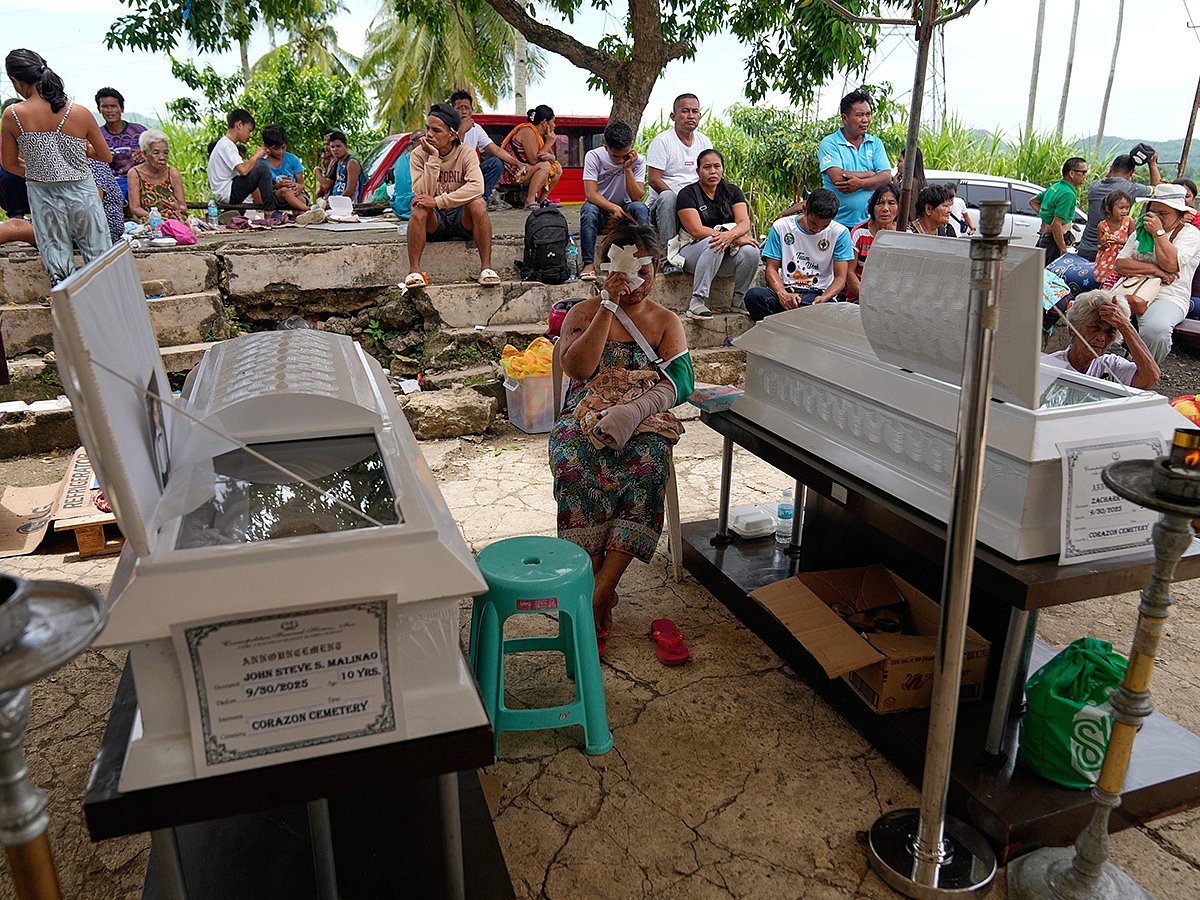Philippines earthquake leaves at least 72 dead, 20,000 homeless
President Ferdinand Marcos Jr. visited quake-hit Cebu and granted P180 million in aid

Dubai: The dust has settled over the rubble in Bogo City, but the ground remains unsteady, both underfoot and in the hearts of its people. Three days after a violent magnitude-6.9 earthquake tore through northern Cebu, the official rescue mission is ending, leaving a community to mourn at least 72 confirmed dead.
The finality of the search was announced Thursday, not with a grand statement, but with weary resignation. 'We have zero missing, so the assumption is all are accounted for,' said Junie Castillo, a spokesperson for the National Disaster Risk Reduction and Management Council, as rescue teams began to pack their gear. The hope for finding more survivors has been replaced by the grim task of recovery and the urgent need to shelter thousands.
The human cost is staggering. Beyond the deaths, nearly 300 are injured, and close to 20,000 residents are now displaced, their lives packed into whatever they could carry. They camp in open fields and along roadsides, flinching with every aftershock that serves as a cruel reminder of Tuesday night's terror.
Philippine President Marcos visits Bogo
On Thursday, President Ferdinand Marcos Jr. walked through the devastation at the Yolanda Housing Village, a cruel twist of fate for a community already upended once by a super typhoon. Here, the very homes meant to be a permanent fresh start lay in ruins; eight residents did not survive.
President Marcos, joined by Cabinet members and Cebu officials, assured survivors that government aid was on the way. He announced that the Office of the President will release P50 million to the provincial government and an additional P20 million each to Bogo City, Sogod, and San Remigio - the areas hardest hit by the earthquake.
The long road ahead
Now, the focus turns to the monumental challenge of recovery. Engineers are nervously assessing schools and hospitals, marking some with red tags to signify imminent danger. The immediate goal is simple: provide shelter before the weather turns and ensure no more lives are lost to the aftermath.
For the people of Bogo City, the shaking has stopped, but the long, slow process of rebuilding a sense of safety has only just begun.
Sign up for the Daily Briefing
Get the latest news and updates straight to your inbox
Network Links
GN StoreDownload our app
© Al Nisr Publishing LLC 2026. All rights reserved.
